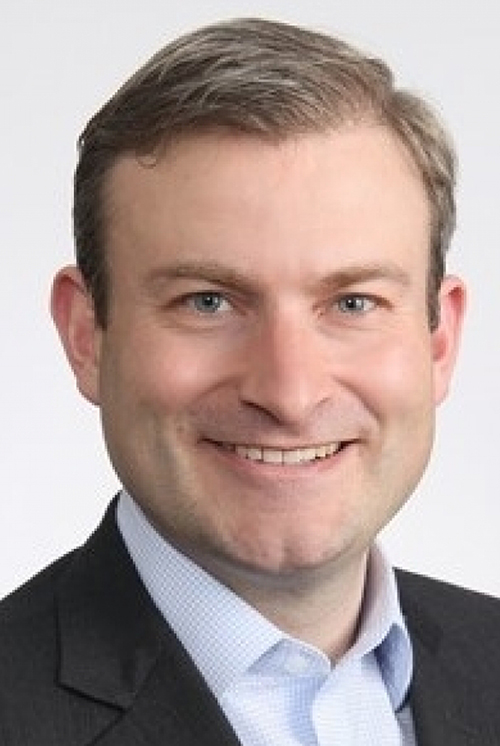UnitedHealth Group Soon to Be Largest Employer of Doctors in the US; Clinical Laboratory Outreach More Critical than Ever Before
While consolidation is a common trend across many sectors—including anatomic pathology groups and hospital systems—UnitedHealth Group is the latest example of the payer-provider consolidation trend impacting medical laboratories nationwide
Pending the successful completion of a $4.9-billion acquisition of DaVita Medical Group, UnitedHealth Group (UNH) will be poised to become the largest single employer of doctors in the U.S., according to numbers reported by leading sources.
Clinical laboratories, anatomic pathology groups, and other service providers that service those doctors should already be taking a serious look at their revenue flows and efficiencies to maintain margins and weather the shift into a model of value-based reimbursement.
Controlling Costs with Direct Care
According to a press release, UnitedHealth Group’s (NYSE:UNH) direct-to-patient healthcare subsidiary, OptumCare, currently employs or is affiliated with 30,000 physicians. And, DaVita Medical Group, a subsidiary of DaVita Inc. (NYSA:DVA), lists 13,000 affiliated physicians on their website. Should acquisition of DaVita Medical Group go forward, OptumCare would have approximately 43,000 affiliated or employed physicians—roughly 5,000 more physicians than HCA Healthcare and nearly double Kaiser Permanente’s 22,080 physicians—thus, making OptumCare’s parent company UNH the largest individual employer of physicians in the U.S. The acquisition is reportedly to reinforce UNH’s ability to control costs and manage the care experience by acquiring office-based physicians to provide services.
OptumCare has seen significant growth over the past decade. OptumHealth, one of three segments of UNH’s overall Optum healthcare subsidiary, includes OptumCare medical groups and IPAs, MedExpress urgent care, Surgical Care Affiliates ambulatory surgery centers, HouseCalls home visits, behavioral health, care management, and Rally Health wellness and digital consumer engagement.

“We have been slowly, steadily, methodically aligning and partnering with phenomenal medical groups who choose to join us,” Andrew Hayek, CEO of OptumHealth (above), told Bloomberg. “The shift towards value-based care and enabling medical groups to make that transition to value-based care is an important trend.” (Photo copyright: Becker’s ASC Review.)
Acquisitions of Doctors on the Rise; Clinical Lab Revenues Threatened
Independent physicians and practices have been a hot commodity in recent years. A March 2018 study from Avalere Health in collaboration with the Physicians Advocacy Institute (PAI) showed that the number of physicians employed by hospitals rose from 26% in July 2012 to 42% in 2016—a rise of 16% over four years.
By acquiring physicians of their own, insurance companies like UnitedHealth Group believe they can offset the cost and shifts in service of these prior trends. “We’re in an arms race with hospital systems,” John Gorman of Gorman Health Group told Bloomberg. “The goal is to better control the means of production in their key markets.”
According to Modern Healthcare, the acquisition of DaVita Medical Group is UnitedHealth’s third such acquisition in 2017. Other acquisitions include:
- Surgical Care Affiliates for $1.3-billion in January; and,
- Advisory Board, a healthcare consulting firm, for $2.3-billion in November.
Along with Surgical Care Affiliates came a chain of surgery centers that, according to The New York Times (NYT), OptumCare plans to use to perform approximately one million surgeries and other outpatient procedures this year alone, while reducing expenses for outpatient surgeries by more than 50%.
NYT also noted that acquisition of DaVita Medical Group doesn’t bring just physicians under the OptumCare umbrella, but also nearly 250 MedExpress urgent care locations across the country.
By having physicians, clinical laboratories, outpatient surgery centers, and urgent care centers within their own networks, insurance providers then can steer patients toward the lowest-cost options within their networks and away from more expensive hospitals. This could mean less demand on independent clinical laboratories and hospitals and, with that, reduced cash flows.
According to NYT, Optum currently works with more than 80 health plans. However, mergers such these—including those between CVS Health (NYSE:CVS) and Aetna (NYSE:AET), and the proposed agreement between Humana (NYSE:HUM) and Walmart (NYSE:WMT) to deliver healthcare in the retailers’ stores—indicate that insurers are seeking ways to offer care in locations consumers find most accessible, while also working to exert influence on who patients seek out, to generate cost advantages for the insurers.
This consolidation should concern hospitals as payers increasingly draw physicians from them, potentially also taking away their patients. The impact, however, may also reach independent medical laboratories, medical imaging centers, anatomic pathology groups, and other healthcare service providers that provide diagnoses and treatments in today’s complex healthcare system.
Deep Payer Pockets Mean Fewer Patients for Clinical Labs and Medical Groups
As this trend continues, it could gain momentum and potentially funnel more patients toward similar setups. Major corporations have deeper pockets to advertise their physicians, medical laboratories, and other service providers—or to raise public awareness and improve reputations. Such support might be harder to justify for independent healthcare providers and medical facilities with shrinking budgets and margins in the face of healthcare reform.
Shawn Purifoy, MD, a family medicine practitioner in Malvern, Ark., expressed his concern succinctly in The New York Times. “I can’t advertise on NBC [but] CVS can,” he noted.
While further consolidation within independent clinical laboratories and hospitals might help to fend off this latest trend, it remains essential that medical laboratories and other service providers continue to optimize efficiency and educate both physicians and payers on the value of their services—particularly those services offered at higher margins or common to menus across a range of service providers.
—Jon Stone
Related Information:
With 8k More Physicians than Kaiser, Optum Is ‘Scaring the Crap Out of Hospitals’
30,000 Strong and Counting, UnitedHealth Gathers a Doctor Army
CVS’s Megadeal to Change U.S. Health Care Faces Stiff Challenges
The Disappearing Doctor: How Mega-Mergers Are Changing the Business of Medical Care
UnitedHealth’s Optum to Buy DaVita Medical Group for $4.9B: 6 Things to Know
UnitedHealth Buys Large Doctors Group as Lines Blur in Healthcare
UnitedHealth’s Optum to Buy DaVita Medical Group for $4.9 Billion
UnitedHealth Is Buying a Major Doctor Group on the Heels of the CVS-Aetna Deal



